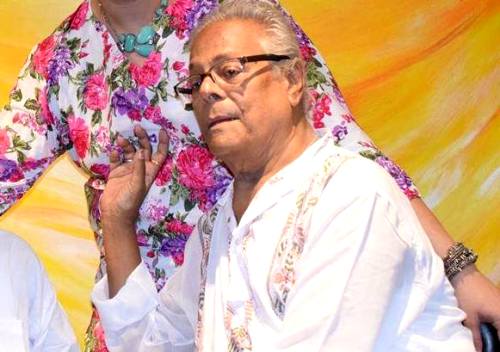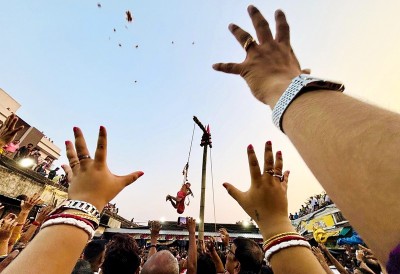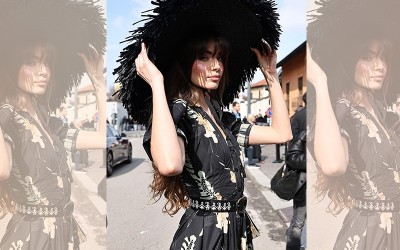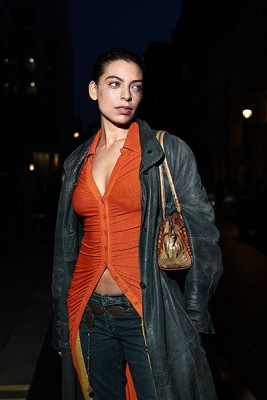
I don’t simply portray feminine gender on stage: actor Chapal Bhaduri
“Now the craft of acting has changed. The method of acting has changed. These days actors including third gender actors are getting lots of acceptability from society. But our battle was tougher, we had to practice a lot,” Chapal, also known as Chapalrani in heydays, tells IBNS on the sidelines of Future Footprints, Obhijatra, an arts project.
“I had reigned over the stage from the 50s till the late 90s. I had long tresses at that time. And every day I practiced voice modulation, how to turn my voice pitch more feminine. I got the support from family but the outside society is more accommodating these days. Wish I got the same treatment in the more conservative 50s and 60s,” Chapal said.
Referring to portrayal of male actors, with feminine traits and impersonating as the fair sex in theatres, in feature films, Chapal, the son of Tara Kumar Bhaduri and Prava Devi, emphasized his portrayal in ‘Arekti Premer Galpo’ was not factual.
“Arekti Premer Galpo is not clear as my biography. It has many differences with my life. Its focus regarding my role was unclear as my life drama,” he said about the Kaushik Ganguly film starring Rituparno Ghosh and Indraneil Sengupta among others couple of years back.
“In fact if I have to speak for myself the most potent medium will be my art and hence it is precisely through my art/performance, not by anyone else,” he explained.
“When I perform it is not simply portrayal of a gender but also love, yearning for an yet unrealized world where love and passion go side by side. I don’t need anybody else to speak for me,” Chapal, who had begun his distinctive career in female impersonation in 1955 when he played Marjina in a production of Alibaba, and slowly attained fame as the highest paid "theatre actress" by the 1960s, explained.
Among his performances Chapal will also rate the role in 1995, during a small-pox epidemic in rural West Bengal, the role of goddess Sitala, a folk deity.
“It was different from the traditional portrayals by men as women in Mansamangal and other folk theatres of the 19th century-early 20th century rural Bengal where nuanced acting was not the norm and raising and lowering your voice pitch I had perfected that art. My craft can’t be equated with those female impersonators who were otherwise men,” he said.
Elocutionist-actor-social activist Sujoy Prosad Chatterjee said, “It is a privilege to felicitate a personality like Chapal Bhaduri who should be applauded.”
Chapal, along with some other artistes, were felicitated at FUTURE FOOTPRINTS: OBHIJATRA, an arts project to explore the concepts of androgyny and impersonation in theatre, conceptualized by him.
Image: Facebook page, Obhijatra
Support Our Journalism
We cannot do without you.. your contribution supports unbiased journalism
IBNS is not driven by any ism- not wokeism, not racism, not skewed secularism, not hyper right-wing or left liberal ideals, nor by any hardline religious beliefs or hyper nationalism. We want to serve you good old objective news, as they are. We do not judge or preach. We let people decide for themselves. We only try to present factual and well-sourced news.







